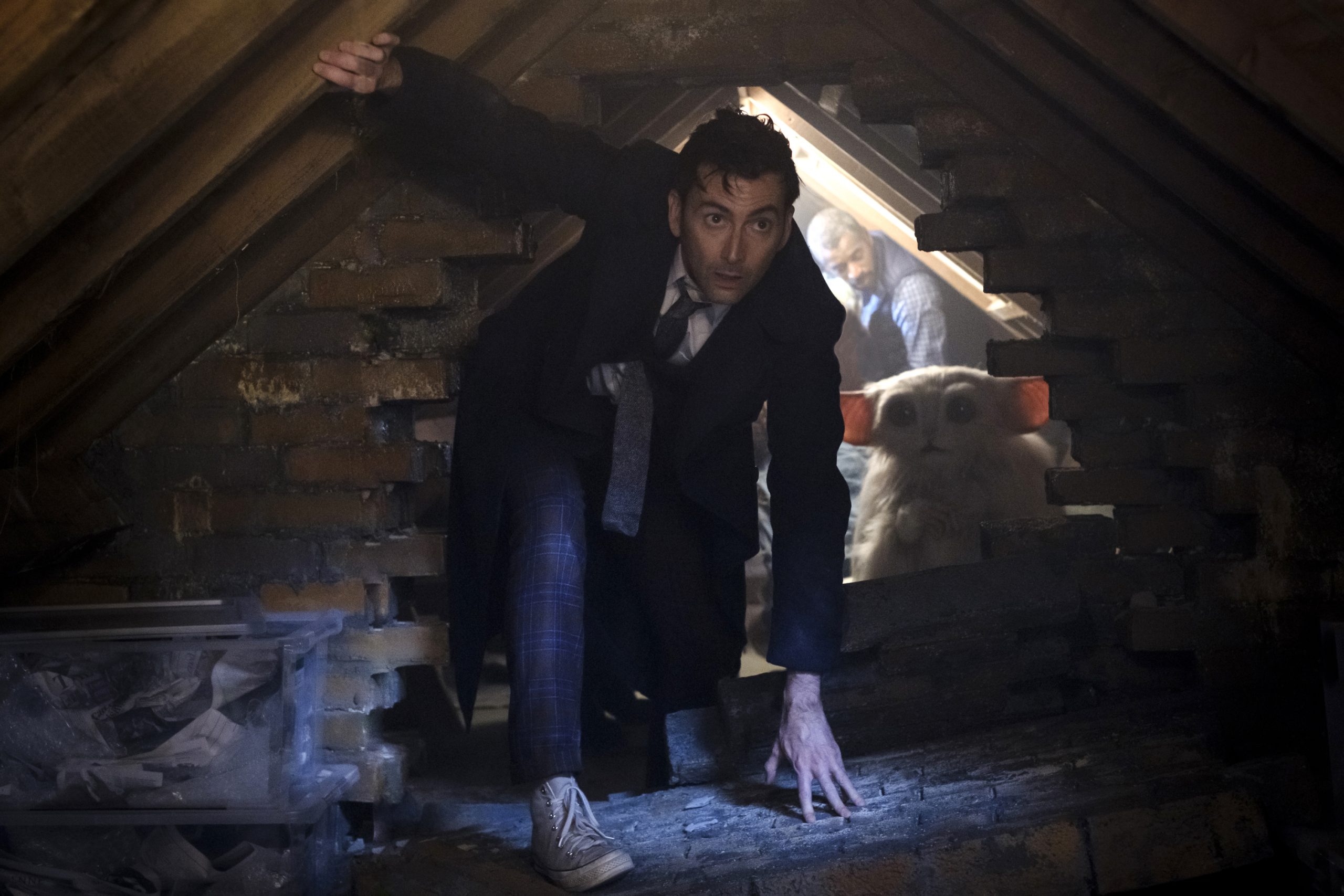In September 2021, it was announced that Russell T Davies, one of Doctor Who’s most beloved showrunners, would be returning to the role of head writer. This news was largely welcomed by fans, following a divisive era overseen by previous showrunner Chris Chibnall, whose tenure was defined by an extensive but underdeveloped supporting cast, controversial changes to the show’s lore and, perhaps most notably, the show’s first female Doctor.
Now, more than two years on and on the 60th anniversary of the British institution, Davies’ new era has finally begun. But was it worth the wait? Did he recapture the same magic viewers experienced when he first took the reins back in 2005?
Davies is far from the only familiar face returning for Who’s Diamond Jubilee. Also back to mark the occasion are fan favourite Doctor/companion duo David Tennant and Catherine Tate as the 10th, now 14th Doctor, and Donna Noble. The pair have returned for three special episodes, of which The Star Beast is the first.
Though the episode’s opening is slightly stilted by an expository recap segment relaying the state of affairs between these characters as we last saw them, it’s clear from the moment they first appear that neither actor has lost the unique spark that endeared them to viewers all the way back in the mid noughties.
I was ecstatic when the pair were confirmed to be returning to the show, and their performances here do not disappoint. Their fondness for each other clearly shines through on screen and their eminently watchable chemistry endures over a decade on, in comedic and heartbreaking scenes alike.
Tennant does an excellent job at portraying the same Doctor that audiences first fell in love with as well as conveying the experience and growth that the character has experienced since.
Tate steals the show in all her scenes, despite fierce competition from Heartstopper’s Yasmin Finney as her daughter Rose and fellow returnee Jacqueline King, in a significantly less chiding and more tender performance as Donna’s mother Sylvia. Ruth Madeley also quietly excels in her few scenes as new character Shirley Anne Bingham, providing some very welcome representation for people with disabilities.
Returning composer Murray Gold also does an excellent job scoring the episode, with the story’s unabashed nostalgia reflected in musical call backs whilst simultaneously introducing new ideas, blending a comforting feeling of familiarity with fresh ideas.
The episode’s villain and newly crowned queer icon The Meep is voiced exquisitely by the incomparable Miriam Margolyes. As well as brilliantly performed, with Margolyes pulling off the change from cuddly ball of fluff to vicious tyrant with great conviction, The Meep is also visually stunning. When they release a Meep teddy, I’ll be first in line (insert “shut up and take my money” GIF here).
However, in the flurry of returning characters and laying of groundwork for this new era, some characterisation and finer plot details seem to fall by the wayside.
Though it was lovely to see Donna’s fierce protectiveness of Rose as well as Sylvia’s cautious attempts to affirm her granddaughter (sold brilliantly and with real tenderness by Tate and King), Finney is given very little to say about the events happening to her.
From the transphobic bullying she is subjected to to, The Meep’s vicious betrayal or her transformation into a nigh-on omniscient being as a result of her mother’s past, the story happens to and around Rose without any real exploration of her response to it. Despite Finney’s strong performance, the viewer is left lacking any real insight into her character’s thoughts and feelings.
Additionally, the resolution to the meta-crisis arc felt somewhat half-baked. Emphasising the Doctor’s gender fluidity throughout the episode, only to remark that he, as a “male-presenting time lord,” lacks the emotional intelligence to understand the necessity of letting go felt strange and almost counter-intuitive to the story’s message. It teeters dangerously close to gender essentialism, which given the episode’s earlier delicate handling of pronouns and identity, does not seem to be the intention. For a plot thread that Davies has had over a decade to engineer a resolution for, this seemed a little unconvincing.
Although The Star Beast is by no means perfect, I was having too much fun watching it to care. Davies delivers a direct hit of nostalgia-based dopamine to viewers’ pituitary glands whilst decisively setting out his stall for a second stint as showrunner. Tennant, Tate and co shine in a dazzling return to form and an extremely strong opener for this new era.
Hail to The Meep, indeed.
